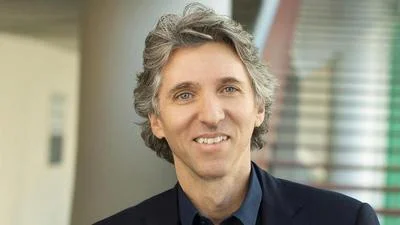Paul Krugman, Nobel laureate and Professor of Economics at the Graduate Center of the City University of New York | CUNY Graduate Center
Paul Krugman, Nobel laureate and Professor of Economics at the Graduate Center of the City University of New York | CUNY Graduate Center
CUNY Chancellor Félix V. Matos Rodríguez joined Baruch President S. David Wu on Wednesday for a class titled “The U.S. Presidency,” one of 4,000 courses being offered this summer at CUNY campuses. More than 65,000 students are enrolled in in-person, hybrid, or online classes during the summer session, which runs until August, marking a 2% increase over last year.
“Summer isn’t all about sunbathing and swimming. For thousands of CUNY students, the summer is an opportunity to get ahead of their studies by taking courses on a condensed schedule,” said CUNY Chancellor Félix V. Matos Rodríguez. “We want to meet students where they are and for many of them, that means taking classes year-round.”
“Baruch students’ curiosity and passion for learning aren’t bound by the traditional academic calendar,” said Baruch College President S. David Wu. “Courses such as this represent the best of what we do: providing dynamic, thought-provoking academic experiences in a flexible format, enabling students to balance work, internships and other responsibilities as they work toward their aspirations.”
The classes are also open to non-CUNY students, allowing many from other colleges to catch up or get ahead on their studies at one of 25 campuses. CUNY created a Summer at CUNY site that features a search tool for students to find the class and campus that matches their needs. Students can earn up to 15 credits during the summer session.
Twenty students are enrolled in the three-credit class on the American presidency, which professor Natale Cipollina has been teaching at Baruch for 24 years. Professor Cipollina lectured on the myth of the 10 greatest presidents.
“The American Presidency is the most significant institution in our nation. It was created to focus all the states on one individual and that’s why we have a nation,” said Baruch College professor Natale Cipollina. “Every year, presidential scholars come up with a list of the 10 most important presidents. They all have their favorites, but they are not always objective because there are so many questions to explore.”
The increase in interest in summer enrollment follows a 3% rise in overall enrollment this academic year to over 233,000 compared to fall 2022. Enrollment at community colleges showed gains of 10 percent after suffering significant declines nationally during the pandemic.
The City University of New York is the nation’s largest urban public university and plays a critical role in New York City's social mobility and workforce diversification. Founded in 1847 as the first free public institution of higher education in the United States, CUNY now comprises seven community colleges, eleven senior colleges, and seven graduate or professional institutions across New York City’s five boroughs. Serving more than 233,000 undergraduate and graduate students annually and awarding around 50,000 degrees each year, CUNY's commitment to quality education has propelled numerous low-income students into higher socioeconomic strata more effectively than Ivy League institutions combined.
More than eighty percent of CUNY graduates remain in New York City post-graduation contributing significantly across various sectors including economic, civic, and cultural spheres. The university's alumni and faculty have received numerous prestigious accolades including thirteen Nobel Prizes and twenty-six MacArthur "genius grants." The historic mission of providing accessible high-quality education continues unabated.
###






 Alerts Sign-up
Alerts Sign-up